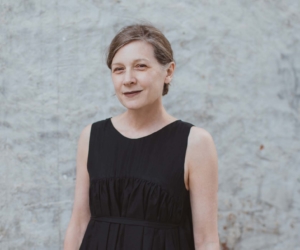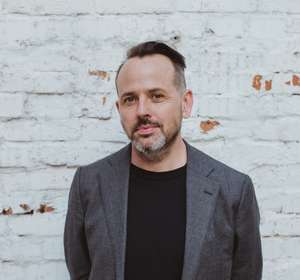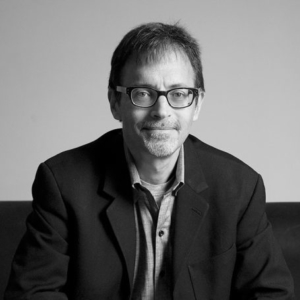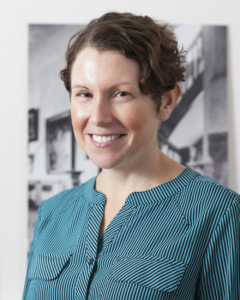Team
Prof. Dieter Dietz
Scientific director
Dieter Dietz has been educated at the Swiss Federal Institute of Technology in Zurich and has studied at the Cooper Union in New York City with Diller/Scofidio. He has received his degree in architecture in 1991 at ETH Zurich. He has worked with Diane Lewis Architects in New York and with Herzog & de Meuron in Basel. With partner architect Urs Egg he was a founding member of UNDEND Architecture in Zurich in 1997, an architectural practice with award winning entries in national and international competitions. Currently he is building up dieterdietz.org, a firm engaging in projects in urban design, media and architecture. From 1996 to 1999 Dieter Dietz has taught as Junior Faculty with Professor Marc Angélil at ETH Zurich. Since 2006 Dieter Dietz is Associate Professor for Architectural Design at EPFL in Lausanne and director of the ALICE laboratory in the ENAC faculty. He collaborates with the ALICE team on research projects at diverse scales with labs inside and outside EPFL. His teaching activities include the direction of the first year architectural design course as well as projects at master and thesis level. Meanwhile public squares and streets roar louder than ever. If the city is both organization of knowledge and socio-ecological structure, we must always think critically about its guiding images and values. We will consider alternative images, imaginaries and counter narratives, and dive into their modes and techniques of production as well as the effects they have on our agency as architects, politicians, engineers or citizens. How do we articulate and figure fairer possible futures in the encounter between the digital and the physical?
Prof. Jeffrey Huang
Scientific director
Jeffrey Huang is the Director of the Media x Design Laboratory and a Full Professor at the Faculty of Computer and Communication Sciences, and at the Faculty of Architecture, Civil and Environmental Engineering (ENAC).
He holds a DiplArch from ETH Zurich, and Masters and Doctoral Degrees from Harvard University, where he was awarded the Gerald McCue medal for academic excellence. He started his academic career as a researcher at MIT’s Sloan School of Management (Center for Coordination Sciences). In 1998 he returned to Harvard as an Assistant Professor of Architecture and was promoted to Associate Professor in 2001. In 2006 he was named Full Professor at EPFL in Switzerland where he holds joint professorships at I&C and ENAC, and heads the Media x Design Lab. He was also a Visiting Professor at Tsinghua University, a Visiting Fellow at Stanford University’s d.school, a Honorary Visiting Professor at the University of Sheffield, and a Berkman Fellow at Harvard University (Berkman Klein Center for Internet & Society).
Professor Huang’s research examines the convergence of physical and digital architecture. His recent work investigates new artificial design paradigms (design decoding and encoding), theories of experience design, and the application of algorithmic urbanism in Chinese cities.
In collaboration with Muriel Waldvogel, he heads Convergeo, an award-winning, international strategic and experience design firm. From 2013-2016, while on leave from EPFL, he led the creation of a revolutionary new school of architecture in Singapore (Bachelor’s, Master’s and PhD programs), as the Head of the Architecture and Sustainable Design Pillar at the Singapore University of Technology and Design (SUTD), a new university established in collaboration with MIT.
Darío Negueruela del Castillo
Scientific coordinator
Dario Negueruela del Castillo is scientific coordinator of the Max Planck Center for Digital Visual Studies hosted by the University of Zurich, and affiliate Head of research at the ALICE EPFL. In 2017 he defended his PhD thesis entitled “The City of Extended Emotions”. Previously, he completed his Diploma of Advanced Studies in Madrid School of Architecture (ETSAM UPM), where he was researcher and coordinator for the Masters in Collective Housing. His background also includes Delft Technical University in the Netherlands (MSc.) and the University of Westminster (BA). Dario’s current research deals with the enaction of novel forms of urbanity through aggregate emotional behaviour and it relation to urban form. In his work, he combines spatial centrality analysis with different methods of quantitative and qualitative analysis on emotional facial, corporal and verbal expression and spatial practices.
Lucía Jalón Oyarzun
Scientific coordinator
Lucía Jalón Oyarzun is an architect and researcher. Head of Research at ALICE EPFL (Atelier de la Conception de l’Espace) and Director of Academic Affairs at Escuela SUR, a postgraduate school of arts in Madrid. She studied at the ETSAM School of Architecture of Madrid where until 2013 she was coordinator of the MArchII in Advanced Architectural Projects and where nowadays teaches in the MArchII in Architectural Communication. There, she also defended her PhD “Exception and the rebel body: the political as generator of a minor architecture” in 2017, an interdisciplinary genealogy of the conflict between the spatial forms used by politics and the exception, and the commons created by the rebel body. She currently continues this line of research through a historical, political and philosophical reading of secrecy and clandestinity as spatial compositions under capitalism, along with investigations on the map as an instrument of (dis)orientation and the anaesthetic effects of the new attentional regimes on the body’s architectural capabilities. She has published her work in several journals and publications.
Sony Devabhaktuni
Scientific coordinator at University of Hong Kong
Sony Devabhaktuni is an assistant professor of design in the Department of Architecture at the University of Hong Kong (HKU). His research and teaching looks at collaborative processes in architectural design and at urban infrastructure. He is interested in architecture’s capacity to engage critically with political and economic concerns – both using drawing, and with methods borrowed from the social sciences. His work on collaboration includes an ongoing research on open-ended partnerships between dancers and architects. He is currently studying the planning, development and ultimate abandonment of a new capital for the Indian state of Andhra Pradesh and the ‘curb-scale’ infrastructure of the Hong Kong street. With John C.H. Lin, he is the co-author of As Found Houses (Applied Research + Design Publishers)(2020). The book documents self-built renovations to traditional house typologies in rural China. He is the co-editor, with Nasrin Seraji and Xiaoxuan Lu, of From Crisis to Crisis: Debates on why architecture criticism matters today (Actar)(2019).
Immanuel Koh
Scientific coordinator at Singapore University of Technology and Design
Immanuel Koh holds a joint appointment as an assistant professor in Architecture & Sustainable Design (ASD) and Design & Artificial Intelligence (DAI) at the Singapore University of Technology and Design (SUTD), where he now directs Artificial Architecture — a transdisciplinary research laboratory that focuses on the design and development of AI models for predictive urbanism and generative architecture. He studied at the Architectural Association (AA) in London before obtaining his PhD at the EPFL. His thesis “Architectural Sampling: A Formal Basis for Machine-Learnable Architecture” was nominated for the Best Thesis Prize. Immanuel has taught at the AA, Royal College of Art (London), Tsinghua University (Beijing), Strelka (Moscow), Angewandte (Vienna), DIA (Bauhaus Dessau), Harvard GSD, UCL Bartlett and many others. His works have been exhibited internationally including London’s V&A Museum, while his publications include Architectural Design (AD) and Design Computing & Cognition (DCC). He has also practiced as a designer at Zaha Hadid Architects (London), as a programmer at ARUP with Relational Urbanism (London), and as a creative coder at anOtherArchitect (Berlin). His forthcoming book “Artificial & Architectural Intelligence in Design” (2020) interrogates the epistemological implications of AI on architecture, and vice versa.
Peter Ortner
Scientific coordinator at Singapore University of Technology and Design
F. Peter Ortner is Assistant Professor in Architecture and Sustainable Design at the Singapore University of Technology and Design. His current research asks how we can build more sustainably and resiliently by taking urban metabolism data into account during the design process. Evidence-based design of cities and buildings for the future of urban automated mobility is another ongoing research interest. Peter’s doctoral research built on insights from critical data studies to elucidate the changing role of architecture and architect in complex, data-driven urban systems.
Guillaume Othenin-Girard
Scientific coordinator at University of Hong Kong
Guillaume Othenin-Girard is an architect and an assistant professor of design in the Department of Architecture at the University of Hong Kong. His research and teaching explore drawing’s transformative role in investigations of territory and architecture; relations between making and the material flows that link human and non-human actors; design-build as an action comprising both material intervention and shared experience. He is interested in collaborative approaches to inquiry and making that bring architecture into a constant relation with culture. In this spirit, he co-founded TEN, a design research studio based in Zurich. During his time with the collective from 2015-2019, he took a leading role in various projects, including the winning entry for the Swiss Art Award for Architecture in 2018. Guillaume is a founding member of Architecture Land Initiative, a cooperative based in Switzerland that carries out political action through projects within the fields of landscape, public space and architecture. From 2018-2019 he directed a collaboration between Studio Tom Emerson (ETH) and the PUCP (Lima, Peru) for the design and fabrication of A Room for Archaeologists and Kids for the Museum of Pachacamac (Architecture Project of the Year, Dezeen Award 2019). He is a co-curator of the upcoming exhibition Vilanova Artigas: Drawing Models (supported by the Graham Foundation). With Nigel Peake, he is the co-author of Go Field and Towers (Amarillo Press, 2017), an approach to teaching and architecture centered around a direct manual relationship with drawing and building.
Román Alonso
Scientific collaborator
Román Alonso is a researcher based in Switzerland. He graduated in 2017 from School of Architecture of Madrid and subsequently he received his MA in Architecture and Urban Planning from Universidad Politécnica de Madrid (2018). His research interests focus on the entanglement between territory and politics, seeking alternative approaches to space-understanding/space-altering practices. He is currently working as an architect for Research at ALICE–EPFL and pursuing a MA degree at Critical, Curatorial and Cybernetic Studies Program at HEAD-Genève.
Alexandre Barrère
Scientific collaborator
Alexandre Barrère is currently working as an architect for Research and Research-Design projects at ALICE and takes part in the Ressources laboratory of the Clermont-Ferrand School of Architecture as Research Associate. He studied architecture at Paris-Malaquais School of Architecture and FADU Buenos Aires (Architecte DE-HMONP). He worked for three years in Paris for ChartierDalix architects in between research-based and built projects, and completed a Post-Master in Architectural Research at Paris-LaVillette School of Architecture before joining the ALICE team.
Frederick Chando Kim
Scientific collaborator
Frederick Chando Kim is an architect and researcher based in Switzerland. His professional experience includes work at agps architecture in Zürich, Safdie Architects in Cambridge, Massachusetts, SOM San Francisco, Gensler Los Angeles, and collaboration with Kayla Manning at fk-km. His work in the Slovenian alps has been awarded an AIA New England Design Honor Award and a nomination for the EU Mies Award. Frederick Kim holds a Bachelor of Science in Art and Design degree from the Massachusetts Institute of Technology (MIT) and a Master of Architecture degree from the Harvard Graduate School of Design (GSD). He has previously taught for the chair of Prof. Dr. Marc Angélil at ETH Zürich and for ETH Singapore. He is currently teaching and pursuing a doctoral degree at Prof. Jeffrey Huang’s Media x Design Laboratory at EPFL in Switzerland.
Christina Doumpioti
Scientific collaborator
Christina Doumpioti [Dip. Arch.Eng (Hons) AA March (distinction)] is an architect and researcher. Currently a PhD researcher at EPFL’s Media x Design Lab, her work investigates the relationship between urban morphology, climate and thermodynamics. Prior to EPFL, Christina taught at the Architectural Association (2009-2018), Brighton University and Royal College of Art. She was the co-director of the Biodynamic Structures Global Visiting School, a collaborative workshop between the Architectural Association and the California College of Arts in San Francisco (2010 and 2011) and member of the Organising committee of the SmartGeometry conference (New York 2012 and London 2013). She has collaborated with Arup Associates, London, Ocean Design Research Association and Buro Happold, London. Her research on computationally driven architecture and simulation has been published in peer-reviewed computational associated conferences such as ACADIA, CAADRIA and ECAADE and has been featured in various journals (Arch+, Architectural Design).
Aurélie Dupuis
Scientific collaborator
Aurélie Dupuis currently pursues her PhD at ALICE laboratory at EPFL (2018-2022). Through developing the notion of proto-choreographies, her research aims at describing and operationalizing dynamics of entanglement between gestures, matter and imagination and the power of translation of the architectural drawing in collective processes of spatial production. Before that she studied architecture in Munich (TU) and Lausanne (EPFL MSc Arch 2015) and worked as a research-assistant at ALICE where she led diverse teaching formats.
Georg-Christoph Holz
Scientific collaborator
Georg-Christoph Holz [BA (Hons), Msc (arch. dipl. EPF)] is an architect and researcher and currently a research assistant at EPFL’s Media x Design Lab. In parallel to his work at EPFL, Georg-Christoph Holz is running his own architectural practice in Lausanne (Whoodxmug sàrl) with a focus on public infrastructure and timber construction. He taught at the HEAD (Haute Ecole Art & Design) Geneva (2013-2016) and co-organised a European summer school (EASA010) in Manchester UK in 2010. His professional experience includes work at Sauerbruch Hutton Architekten in Berlin, Henning Larsen Architects in Copenhagen and Dreier Frenzel in Lausanne.
Mikhael Johanes
Scientific collaborator
Mikhael Johanes explores the generative and analytical possibility of computational media in architectural design while also sharing his expertise in the current architectural education institutions. His work covers a wide array of computational methods in architecture that includes spatial analysis, simulation, digital media, and machine learning. Since he finished his master in architecture in Universitas Indonesia 2013, he continued his career as a lecturer and research staff in his alma mater. He won the Acknowledgment Prize in Holcim Awards 2015 Asia Pacific Region for “Megacity Skeleton”, a collaborative project with Research Institute for Humanity and Nature (RIHN) and Chiba University, Japan. He was also awarded and Outstanding Papers and Design Works in the UIA 2017 Seoul World Architect Congress. He published his work in several international journals, including Urban Design International and Computer-Aided Design and Applications. Currently, he is studying and teaching as a Doctoral Researcher at the Media x Design Laboratory at EPFL, Switzerland.
Julien Lafontaine Carboni
Scientific collaborator
Julien Lafontaine Carboni studied at Paris-Malaquais School of Architecture (ENSAPM, Master of Architecture and Urbanism), and in Clermont-Ferrand, France (ENSACF). He currently pursues his PhD at Alice Laboratory, EPFL. His doctoral research aims to explore the history of architecture and city thanks to the concept of Protofiguration (neologism forged by the lab). More accurately, acts and gestures of settlements in plural civilization are studied; scaffolding our perceptions and actions, protofigurations designate active and operational geometries of transindividuation.




